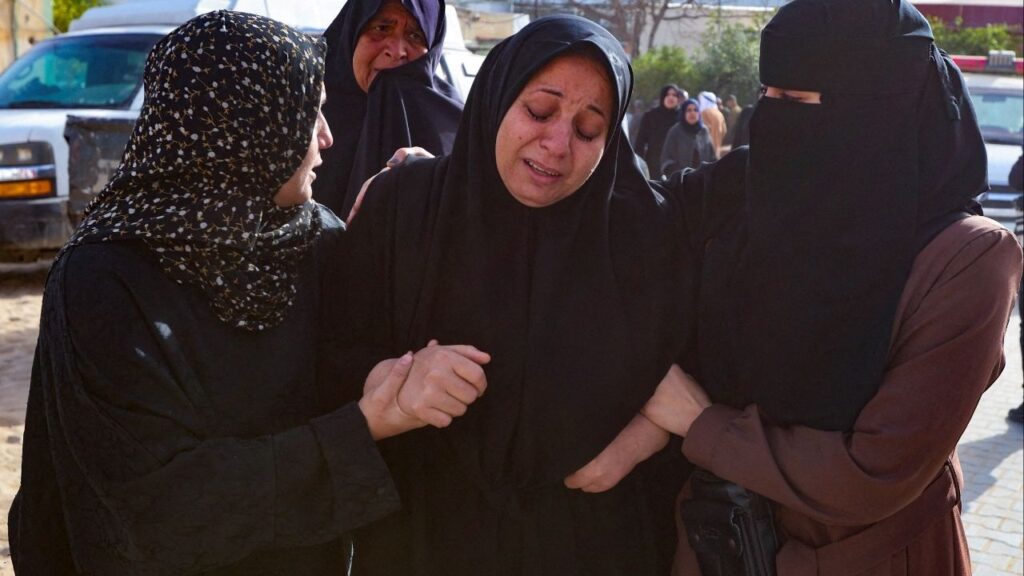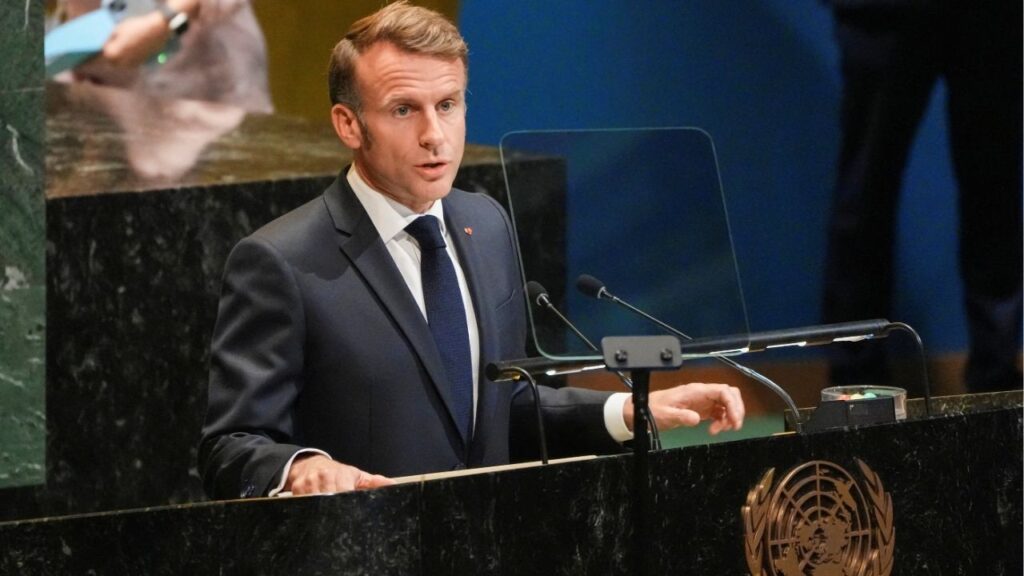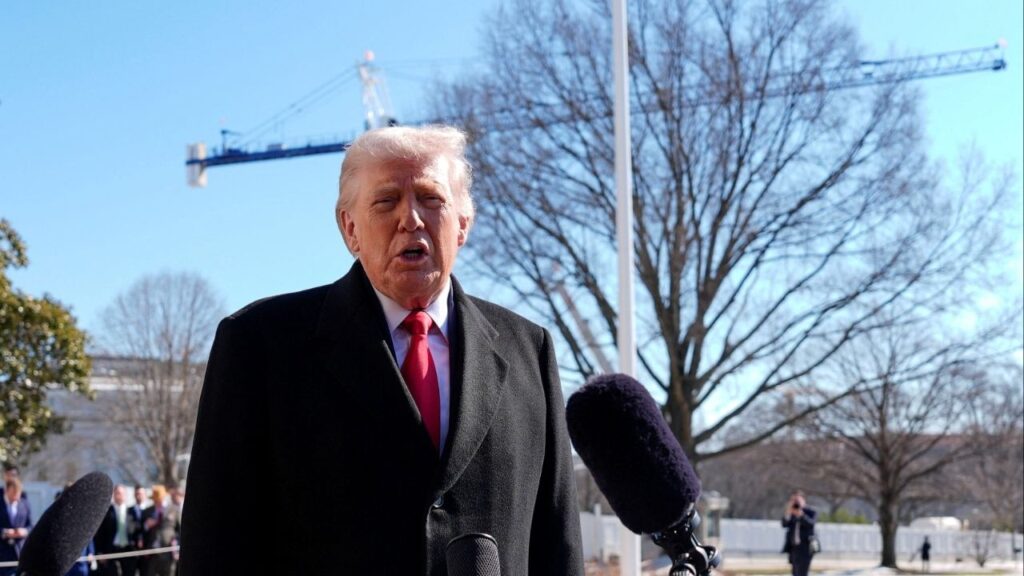US vetoed a widely backed U.N. resolution on Thursday that would have paved the way for full United Nations membership for the state of Palestine. (AP/Yuki Iwamura)

- In the 15-member Security Council, 12 were in favor, two abstained, and the U.S. opposed.
- The Palestinian Authority first tried to gain full U.N. membership in 2011.
- Palestinian reps said that U.N. membership would bring hope for "a decent life."
Share
|
Getting your Trinity Audio player ready...
|
UNITED NATIONS — The United States vetoed a widely backed U.N. resolution on Thursday that would have paved the way for full United Nations membership for the state of Palestine.
The vote in the 15-member Security Council was 12 in favor, the United States opposed, and two abstentions.
The resolution would have recommended that the 193-member General Assembly, where there are no vetoes, approve Palestine becoming the 194th member of the United Nations. Some 140 countries have already recognized the state of Palestine, so its admission would have been approved.
This is the second Palestinian attempt to become a full U.N. member, and it comes as the war in Gaza, now in its seventh month, has put the more than the 75-year-old Israeli-Palestinian conflict at center stage.
Before the vote, U.S. deputy State Department spokesman Vedant Patel said the United States has “been very clear consistently that premature actions in New York — even with the best intentions — will not achieve statehood for the Palestinian people.”
Palestinian membership “needs to be the outcome of the negotiation between Israel and the Palestinians,” U.S. deputy ambassador Robert Wood said. It “is something that would flow from the result of those negotiations.”
Anything that gets in the way “makes it more difficult to have those negotiations” and doesn’t help move toward a two-state solution where Israel and Palestine live side by side in peace, which “we all want,” Wood told reporters.
Related Story: US and UK Issue New Sanctions on Iran in Response to Tehran’s Weekend ...
Palestine First Applied for UN Membership in 2011
Palestinian President Mahmoud Abbas first delivered the Palestinian Authority’s application for U.N. membership to then-Secretary-General Ban Ki-moon in 2011. That initial bid failed because the Palestinians didn’t get the required minimum support of nine of the Security Council’s 15 members.
The Palestinians then went to the General Assembly and by more than a two-thirds majority succeeded in having their status raised from a U.N. observer to a non-member observer state in November 2012. That opened the door for the Palestinian territories to join U.N. and other international organizations, including the International Criminal Court.
The Palestinians revived their bid for U.N. membership in early April, backed by the 140 countries that have recognized Palestine as an independent state.
Membership Would Grant Palestinians Hope, Says Leader
Ziad Abu Amr, special representative of the Palestinian president, said adopting the resolution would grant the Palestinian people hope “for a decent life within an independent state.”
He said such “hope has dissipated over the past years because of the intransigence of the Israeli government that has rejected this solution publicly and blatantly, especially following the destructive war against the Gaza Strip.”
He stressed to the Security Council that it won’t be an alternative “for serious negotiations that are time-bound to implement the two-state solution” and U.N. resolutions, and to resolve pending issues between Palestinians and Israelis.
Related Story: Netanyahu Dismisses Calls for Restraint, Says Israel Will Decide Iran Attack ...
Israel Agrees With US Stance
Amr asked the U.S. and other countries opposed to its U.N. membership how that could damage prospects for peace or harm international peace and security when they already recognize Israel and approved its U.N. membership.
“To grant the state of Palestine full membership will be an important pillar to achieve peace in our region, because the Palestinian-Israeli conflict and its different dimensions now goes beyond the borders of Palestine and Israel and impacts other regions in the Middle East and around the world,” the Palestinian envoy said.
Israeli-Palestinian negotiations have been stalled for years, and Israel’s right-wing government is dominated by hard-liners who oppose Palestinian statehood.
Israeli U.N. Ambassador Gilad Erdan called the resolution “disconnected to the reality on the ground” and warned that it “will cause only destruction for years to come and harm any chance for future dialogue.”



















